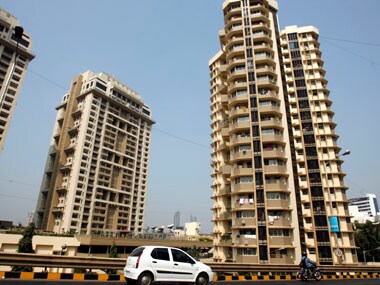The Smart City Plan of the government introduced in June 2015 is one of the largest endeavors made to make Indian cities move towards global standards. There were attempts made in the past through the JNNURM (Jawaharlal Nehru National Urban Renewal Mission), which did not quite take off in the expected manner mainly due to funding issues and absence of rigorous monitoring of the same. The present Scheme has been well crafted and more importantly has been time bound to the extent that there is regular monitoring of what is going on as both central and state government resources are involved. The fact that work is already in progress for 60 of them is testimony to the urgency for the same. The project involved selecting the top 100 cities which could be structured in terms of redevelopment or retrofitting so as to meet certain standards. A sum of Rs 500 crore was to come from the Centre and matched by the state over a period of 5 years. Cities had to compete from within the state to be short-listed by the state government after which the application would move over to the Ministry of Urban Development. The first 60 names are already in place, and the second list released today includes 30 more cities under this plan. This would leave aside another 10 to be filled in the near future. The new inclusions cover 20 states with a slight tilt towards Tamil Nadu (4 cities), UP and Gujarat (3 each), J & K, Bihar and Chattisgarh (2 each). A total of Rs 57,393 crore is to be spent on these cities, with a little over 80% in areas identified by citizens for area development and the balance of technology based governance issues including service related targets. The progress hence has been quite good in terms of identification of cities and triggering the process of redevelopment. Some of the traits of these smart cities is in the area of use of land that is best suited for the inhabitants which will include roads, housing, walking spaces, open spaces, business opportunities etc.  The Smart City Plan has certainly also raised some very interesting idea on financing which have also been put into practice. It is true that there are limits to which the government can provide funds. Ideally after a point of time they should become self-sustaining and this is where user charges become important. Presently several facilities are either provided gratis or charged below the economic cost which puts pressure on the service quality. The ULBs must start bringing in systems where there is distinction between services that are provided free to all and those which are charged on the basis of cost. Services like parks, parking, 24-hour supply of services, toll roads etc. would be a way to going about earning revenue. Second, having PPP for proving some services would also become important going forward as it brings in efficiency as well as quality in these areas while making the activity economically feasible. Such partnership shave been witnessed in the case of toll-roads and attempts should be made for also extending the same to other civic facilities like water supply or garbage collection. Third, for large projects, raising money through bonds would become a necessity over time and the government has taken a very good step in getting a large number of ULBs rated by credit rating agencies so as to sift across those which could raise funds on their own and others which will not be able to access these markets. The recent issuance of PMC (Pune Municipal Corporation) is a very good example of what can happen in this space. In fact, credit rating evaluates whether a ULB can raise funds in the market and typically those with a AA rating or higher can access the markets at a reasonable cost. The rating is useful even for those which have a lower standing as such exercises involves continuous annual monitoring which can help track the progress made over time which will ultimately help to bring about improvements in finances and service quality. As a rating requires audited financial statement, it has already been seen that several ULBs have gone in for such audits of their accounts for the last 3 years to meet the SEBI stipulation for accessing these markets. The future challenges would be more in the area of implementation which has always been our Achilles heel. It has been observed in the past that development of cities has tended to be lop-sided with dualism being observed in almost every habitation in terms of there being ‘good and bad’ areas in the cities. The city centres tend to be well maintained while the level of standards drop as one moves away from the government hubs. Further, while there is always a lot of enthusiasm in starting new projects in terms of say, constructing a flyover or a new park, less attention is paid towards the maintenance as a result of which there are yawning gaps in quality over time. The present Smart Cities Project does not address this issue and the focus still seems to be more on creating new structures which are modern and comparable to the best, with little or no emphasis on the follow-up work required. Ideally it is hoped that along the course of these 5 years when the cities would be financed, there would be a proportional allocation towards maintenance of these facilities. It is then that one can be satisfied that the entire edifice is in place. (The author is chief economist, CARE Ratings. Views are personal)
Ideally it is hoped that along the course of these 5 years when the cities would be financed, there would be a proportional allocation towards maintenance of these facilities. It is then that one can be satisfied that the entire edifice is in place
Advertisement
End of Article
Written by Madan Sabnavis
Madan Sabnavis is Chief Economist at CARE Ratings. see more


)




